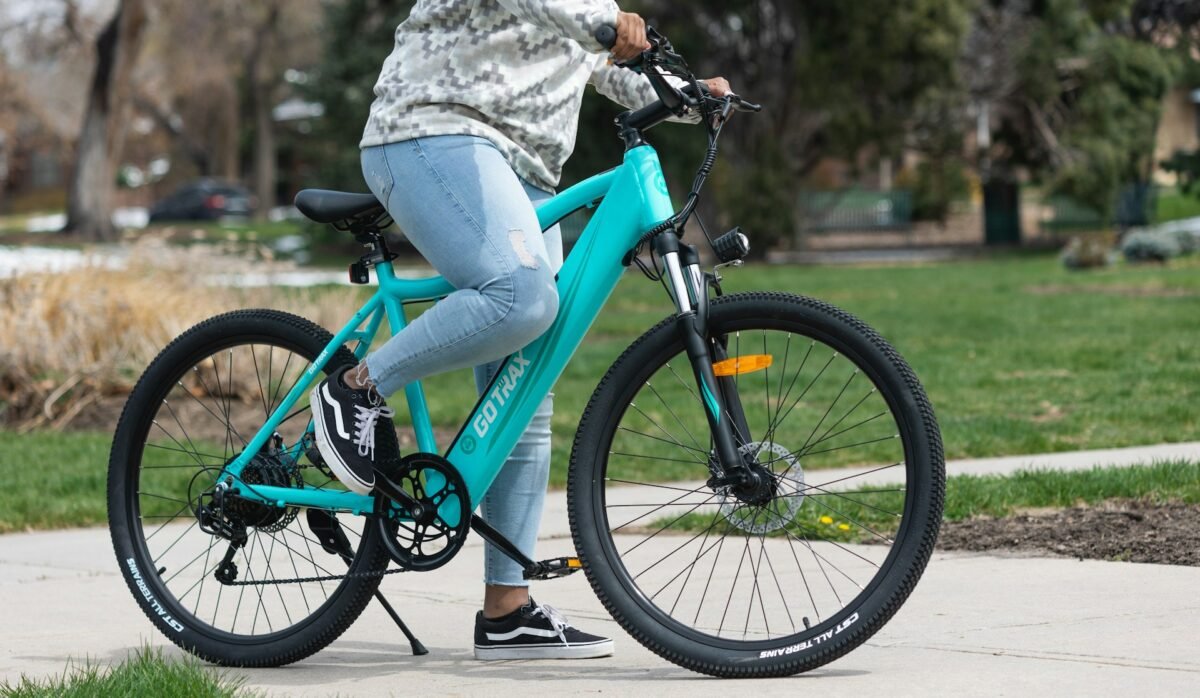Urban landscapes are rapidly evolving, driven by technological advancements and the need for sustainable solutions.
Smart cities are at the forefront of this transformation, integrating data-driven infrastructure to enhance mobility, efficiency, and overall quality of life. As urban populations grow, traditional transportation systems are facing increased congestion, pollution, and inefficiency, prompting the search for alternative commuting methods.

One of the most promising solutions emerging in modern travel is the adoption of e-bikes. These battery-assisted bicycles are reshaping how people navigate cities, offering a cost-effective, environmentally friendly, and convenient mode of transport. As cities prioritize sustainability and smarter mobility solutions, e-bikes are becoming an integral part of urban transportation networks.
Understanding their role in the transition toward more efficient commuting is essential for embracing the future of smart travel.
Enhancing Urban Mobility with E-Bikes
The shift towards smarter commuting solutions has led many individuals to reconsider their transportation choices. Traditional modes of travel, such as cars and public transit, often struggle with issues like traffic congestion, high fuel costs, and limited accessibility. In contrast, an ebike offers an efficient and flexible alternative that addresses many of these urban mobility challenges.
E-bikes provide riders with the ability to travel longer distances with less physical exertion while reducing dependence on cars. They combine pedal power with battery assistance, making them ideal for individuals who want a faster and less strenuous commute.
Unlike conventional bicycles, an electric bike by HeyBike makes it easier to tackle inclines and longer routes without requiring excessive effort. This feature appeals to a broad demographic, including daily commuters, older adults, and individuals looking for a practical way to travel short to medium distances.
The Environmental Impact of E-Bike Adoption
Reducing carbon emissions and minimizing reliance on fossil fuels are key objectives in the development of smart cities. Traditional transportation systems, particularly those reliant on gasoline-powered vehicles, contribute significantly to pollution levels. The adoption of e-bikes presents a viable solution for reducing urban emissions while promoting cleaner air and a healthier environment.
E-bikes operate using rechargeable batteries, significantly lowering their carbon footprint compared to cars or motorcycles. While they do require electricity, their energy consumption is minimal, and advancements in battery technology are continually improving efficiency. Many urban commuters have found that switching to e-bikes reduces their dependence on fuel-powered vehicles, leading to noticeable savings on transportation costs while contributing to sustainability efforts.
Beyond emissions, e-bikes also help reduce noise pollution. Unlike cars and motorcycles, they operate quietly, making them an ideal choice for cities looking to enhance livability while minimizing traffic noise.
E-Bikes and the Future of Commuting
As cities invest in smarter transportation networks, the role of e-bikes in everyday commuting is expected to expand. The growing demand for alternative transit methods has led to significant advancements in e-bike technology, including improved battery life, enhanced durability, and smart connectivity features. Many modern e-bikes are equipped with GPS tracking, digital displays, and mobile app integration, allowing users to monitor their rides, track battery levels, and navigate efficiently.
The rise of e-bike-sharing programs is further accelerating adoption rates. Many urban centers have implemented rental services that make e-bikes accessible to residents and visitors alike. These programs offer a convenient way to experience e-bikes without the commitment of ownership, making them an attractive option for casual riders and tourists. Additionally, e-bike rentals provide a practical last-mile solution for individuals who use public transportation but need a quick and efficient way to reach their final destination.

Economic Benefits for Urban Commuters
Beyond convenience and sustainability, e-bikes offer significant financial advantages. The cost of owning and maintaining a car is steadily increasing, with expenses related to fuel, insurance, parking, and repairs placing a burden on many urban dwellers. E-bikes provide a more affordable alternative, requiring minimal upkeep while offering a cost-effective means of commuting.
Many riders find that e-bikes significantly reduce their monthly transportation expenses. Charging an e-bike costs a fraction of what it takes to refuel a gas-powered vehicle, and maintenance requirements are far lower. With fewer mechanical components than traditional motor vehicles, e-bikes are easier and cheaper to maintain, making them an attractive option for individuals looking to cut commuting costs.
For businesses, e-bike adoption presents opportunities for cost savings and operational efficiency. Many companies have started incorporating e-bikes into their delivery fleets, particularly in industries such as food delivery and courier services. E-bikes allow businesses to navigate city streets quickly, avoid traffic delays, and reduce expenses associated with fuel and vehicle maintenance.
Urban Infrastructure and Policy Support for E-Bike Growth
The continued success of e-bikes as a mainstream transportation option relies on supportive policies and infrastructure development. City governments and urban planners play a crucial role in fostering an environment where e-bike usage can thrive. Investments in bike-friendly infrastructure, such as dedicated lanes, secure parking, and charging stations, are essential for encouraging widespread adoption.
In many cities, policymakers are implementing incentives to promote e-bike ownership. These incentives include subsidies, tax breaks, and financing options designed to make e-bikes more accessible to the general public. Some regions have also introduced legislation that supports safer road-sharing practices, ensuring that cyclists and motorists can coexist harmoniously.
Changing Lifestyles and the Future of Smart Travel
As urban residents become more conscious of environmental sustainability, personal health, and cost-efficient commuting options, e-bikes are emerging as a preferred method of travel. Their ability to bridge the gap between traditional bicycles and motorized vehicles makes them an attractive solution for individuals looking for a practical, eco-friendly mode of transport.
E-bikes offer more than just convenience; they align with the broader vision of smart cities that prioritize efficiency, connectivity, and reduced environmental impact. With ongoing advancements in battery technology, lightweight designs, and smart integration features, the future of e-bikes looks increasingly promising. All in all, by embracing e-bikes as a fundamental component of modern transportation, cities can reduce congestion, lower emissions, and provide residents with a more accessible and efficient way to commute.
As urban areas continue evolving, integrating e-bikes into daily travel will promote sustainability, enhance mobility options, and contribute to a healthier, more connected community.






